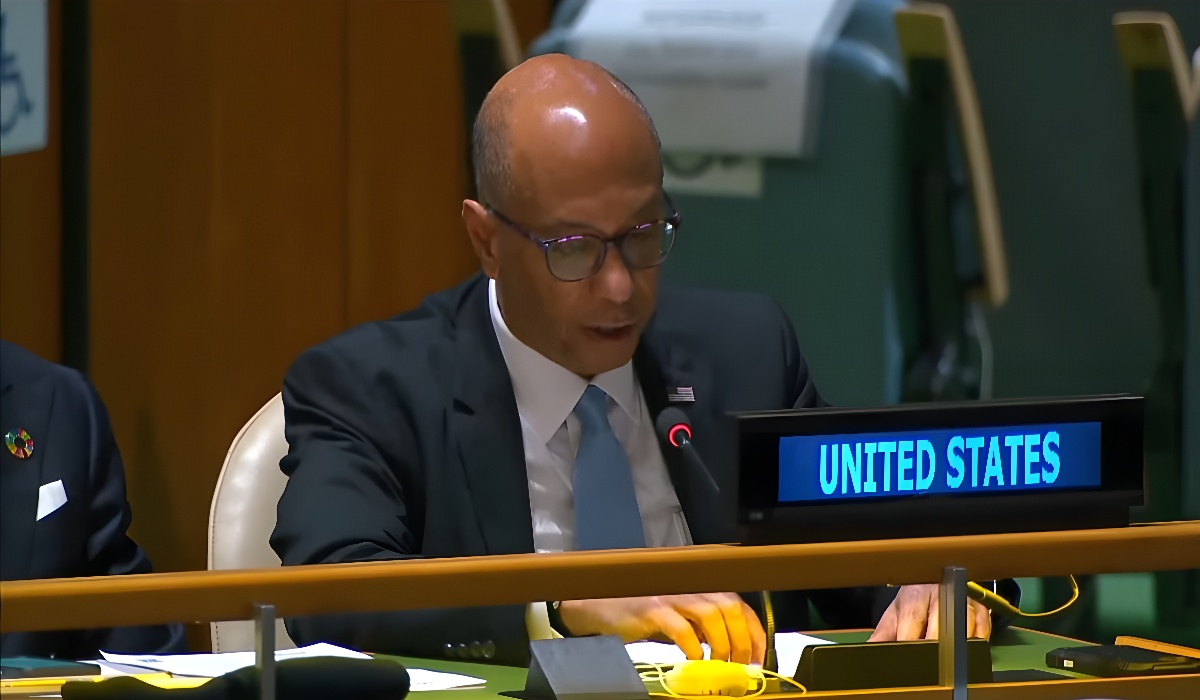Developers at the Floodgates: Winnipeg City Council Faces Reckoning After Parker Land Court Ruling
- TDS News
- Breaking News
- Western Canada
- August 1, 2023

Part 2
Justice Shauna McCarthy’s recent ruling by the Manitoba Court of King’s Bench shockwaves is still felt through Winnipeg City Hall. The verdict implicates city employees acting under the direction of a sitting Councillor, John Orlikow, for interfering in a significant development project.
Justice McCarthy’s ruling laid out a compelling and thorough analysis of the City’s deliberate attempt to hinder the development. Drawing on precedents set by the Supreme Court of Canada, she established a clear test for misfeasance in public office involving the abuse of public office for inappropriate purposes. The principle that public bodies must not use their powers in a manner incompatible with the purposes envisioned by the statutes under which they derive such powers is firmly established in Canadian law.
In her ruling, Justice McCarthy cited various decisions throughout Canada, building a solid case that “the conduct of the defendants, Smith and Robinson, rise to the level of misfeasance in public office.” Her analysis pointed to a pattern of conduct by these city employees incompatible with their roles and responsibilities. Moreover, the Justice found in her view that “the City is vicariously liable for the improper conduct of its employees and the reasonable damages that flow from their conduct.”
This ruling has the potential to be a catalyst, opening the floodgates for other developers who may have felt wronged by the City’s practices. Contentious issues relating to planning, zoning, and building matters have long been adjudicated. Still, the Court’s decision favouring Gem Equities and the Parker Land development exposes the City’s contempt and liability and offers a blueprint for seeking justice against Winnipeg City Hall. In the aftermath of this landmark ruling, developers are unlikely to remain silent, raising concerns about potential untold financial settlements that Winnipeg taxpayers may be held accountable for.
The ruling in the Gem Equities’ Parker Land development case serves as a wake-up call for Winnipeg City Hall. The Court’s decision revealed that city employees intentionally interfered in the development process at the behest of a sitting Councillor, leading to delays and obstructions.
Within the magistrate’s extensive 92-page ruling, many instances are detailed, exposing the city planners and Councilor Orlikow’s concerted efforts to control and impede the Parker Land development.
The development plans were often subjected to review, and a peer review was assigned to propose multiple changes without seeking input from Gem Equities. The lack of consultation on such crucial matters raises serious concerns about transparency and fairness in the City’s development processes. Even more troubling, one city employee confirmed that they were directed to deliberately slow down the planning process, which they did to hamper Gem Equities’ progress further.
“In September 2015 when the peer review was completed, it identified primarily formatting issues and the need for the appropriate level of comfort from the Councillor. The content was largely reported to be okay. However, by that time Smith had been made aware that one of Orlikow’s reasons for wanting the development delayed was that approval would, in the Councillor’s view, increase the value of lands expropriated from GEM which the City had not yet paid for. “Excerpts from Justice McCarthy’s Ruling
One of the most troubling revelations is the primary motive behind delaying the Parker Land projects. Councillor Orlikow was more concerned about the potential cost the City would have to pay to Gem Equities for the expropriated land, which they had yet to compensate for due to its increased value after the City’s subsequent development efforts.
Justice McCarthy’s ruling also introduced compelling evidence showing a concerning incident on June 6, 2014. City employee Doney met with Councilor Orlikow without the knowledge of Marquess, the developer. Following this meeting, Doney sent an email to his supervisors, Shenback and Robinson, relaying a message from Orlikow to the PPD (Property, Planning, and Development) that the Parker Lands Plan should be approved as a Secondary Plan, and there was no rush to complete it before the Civic Election.
The email also stated that public engagement should only occur after the election. What is most troubling is that this crucial information was not shared with the Plaintiffs, indicating the Councillor’s desire to prioritize his re-election prospects over transparency and the potential fallout of his constituents knowing about the increased land value resulting from the takeover and the overall complexities of the process. This revelation raises significant questions about the ethics and motivations of City Council members and highlights the need for greater transparency and accountability in Winnipeg’s political landscape.
City Hall’s decision-making process needs to be revised as it is fundamentally flawed. By following the Councillor’s instructions, you can see that this was not a well-considered business decision but a reckless and irresponsible one.
As a result of this revelation, Winnipeg taxpayers are again on the hook for an unspecified but undoubtedly significant sum. Given the magnitude of the Parker Land project and Gem Equities’ claims, the City’s potential financial liability could be in the tens of millions or even more. This looming financial burden raises severe concerns about the City’s fiscal responsibility and the need for better oversight and scrutiny of its decision-making processes.
As the fallout from Justice McCarthy’s ruling unfolds, Winnipeg’s citizens are left to grapple with the prospect of bearing the weight of yet another costly legal battle, which could have been avoided with more prudent and responsible actions by their elected representatives. The urgent need for accountability and transparency in City Hall has never been more evident, as the taxpayers rightfully demand answers and assurance that their hard-earned money is not squandered due to irresponsible decisions and misconduct by those in positions of power.
City Hall’s miscalculation will undoubtedly have reverberating effects, and unfortunately, they chose to pick a fight with the wrong developer. Fortunately for Mr. Marquess, he had the foresight to maintain detailed records of emails and accounts of the situation, which played a crucial role in substantiating his claims. This well-documented evidence strengthened his case and highlighted the importance of developers being vigilant in protecting their rights when dealing with the Winnipeg City Council.
The ruling’s revelations are a wake-up call for the City and a stark reminder that Gem Equities’ experience might not be an isolated incident. It raises serious concerns about the conduct of the City’s officials and the need to safeguard against future abuses of power.
The landmark verdict not only holds the City liable for its actions but also sets a precedent for other developers who might have faced similar mistreatment. For years, developers have expressed concerns about the operations and decision-making of City Hall, particularly regarding planning and zoning matters. However, the Court’s ruling now provides a clear path for seeking justice against the City if developers feel their projects were unjustly hindered or affected by its actions or that of a sitting Councillor.
The implications of the Court’s decision are far-reaching and deeply concerning. With the floodgates now open, more developers will likely come forward with grievances against Winnipeg City Hall. Decades of land development deals, proposals, and land swaps involving the City have created an environment where it is hard to believe that no other developers felt wronged in their dealings. If multiple cases emerge, the potential financial settlements for taxpayers of Winnipeg could be astronomical. The City could be embroiled in costly legal battles for decades, leading to further financial burdens for its citizens.
In light of the ruling, the Mayor and City Council are responsible for thoroughly investigating their departments and practices. It is crucial to address the concerns raised and ensure that any instances of interference in development planning are identified and rectified.
Doing so would help the citizens better understand the current Mayor, Scott Gillingham perspective and decision-making as he was in the inner circle and sat on the powerful Executive Policy Committee as the Finance Chair in the previous administration of Mayor Brian Bowman.
It is hard to press to assert Gillingham, as the previous finance chair, was oblivious to the dealings of the Parker Land development. Furthermore, Winnipeggers are waiting to see how far-reaching the plaque of interference runs at City Hall and how the Mayor plans to clean up the mess. One that he was a part of under the Bowman administration.
Then there is the matter of the recent statement by Mynarksi Ward Councillor Ross Eadie, responding to inquiries of a concerned citizen wanting to know how City Hall will address its inference as per Justice McCarthy’s 92-page ruling; Councillor Eadie replied, “Give it up Mr. Woodstock. Councillor John Orlikow was simply doing his job not unlike most of us Councillors when it comes to the development of our urban Winnipeg whether it is infill or green field.
Mr. Marquess just wants what he wants and anything else is unfair to him. Thank goodness all developers are not like that – they compromise for a better Winnipeg.” Wrote Councillor Ross Eadie.”
Councillor Eadie’s statement requires further explanation so all citizens can understand what type of compromises developers have been making to better Winnipeg, as he publicly stated.
A class-action lawsuit against the City is not out of the realm of possibility, further escalating the financial repercussions for Winnipeg. The uncertainty surrounding potential legal battles creates anxiety for citizens who may ultimately bear the brunt of any financial settlements.
Winnipeg now faces uncertainty and uncharted territories, with the potential for multiple legal battles that could leave the City’s taxpayers holding the financial burden. The Mayor and City Council must take decisive action to investigate and address these concerns, demonstrating a commitment to transparency, accountability, and responsible governance. Only then can Winnipeg move forward and regain the trust of its citizens.








